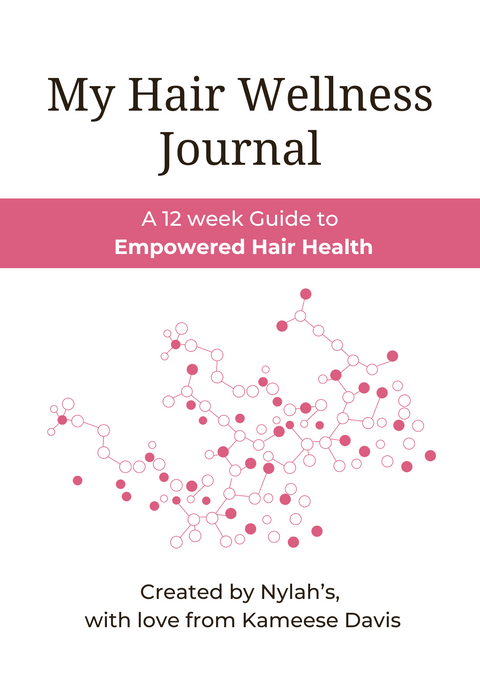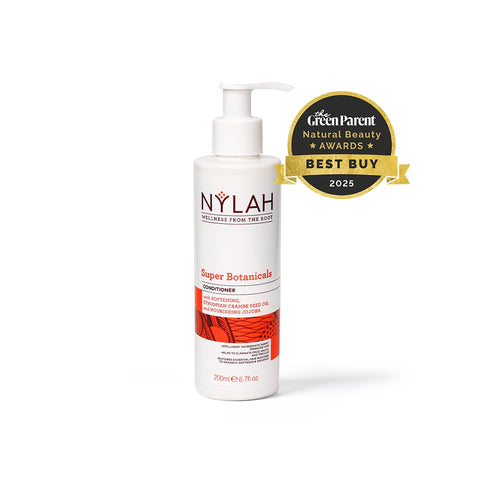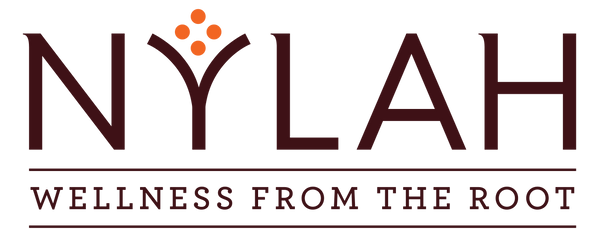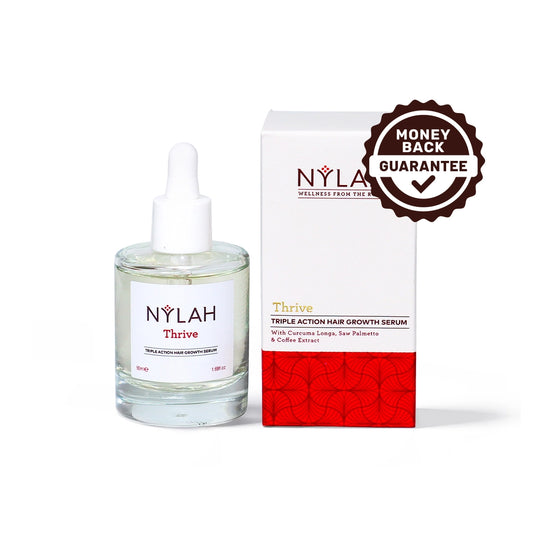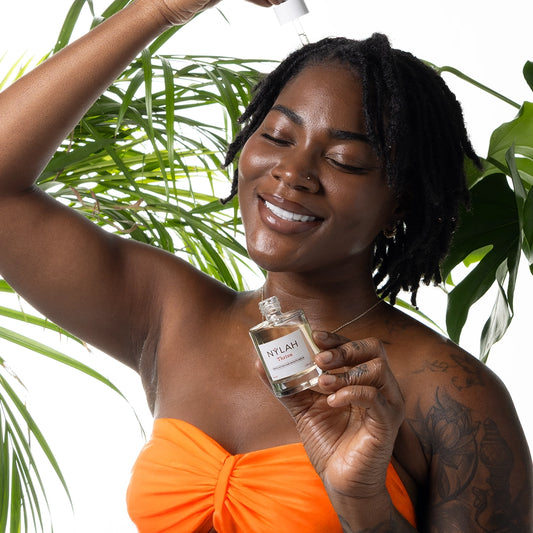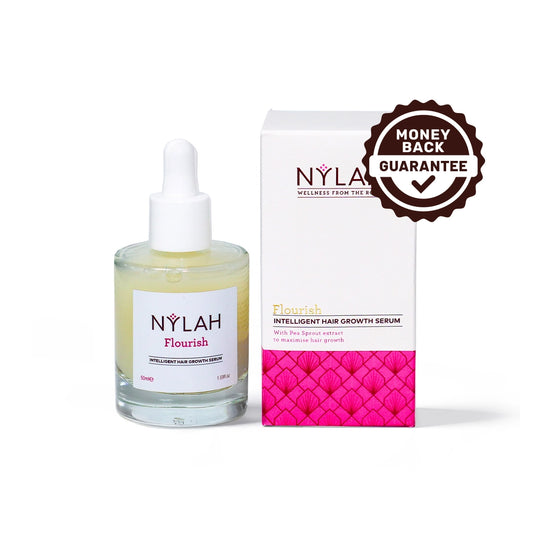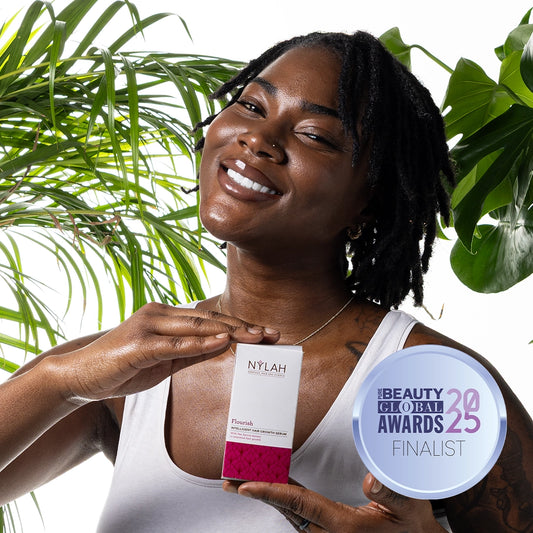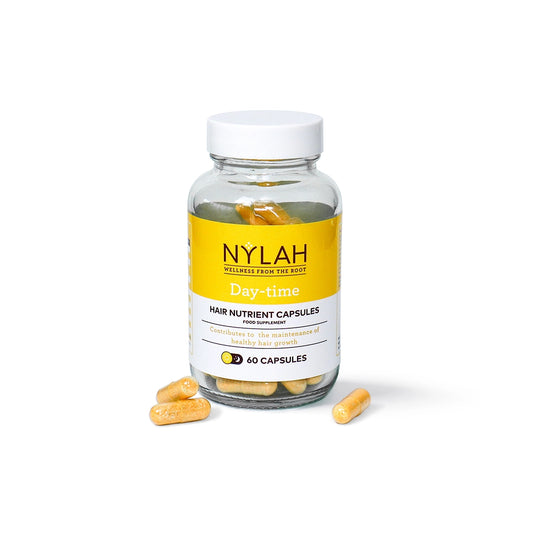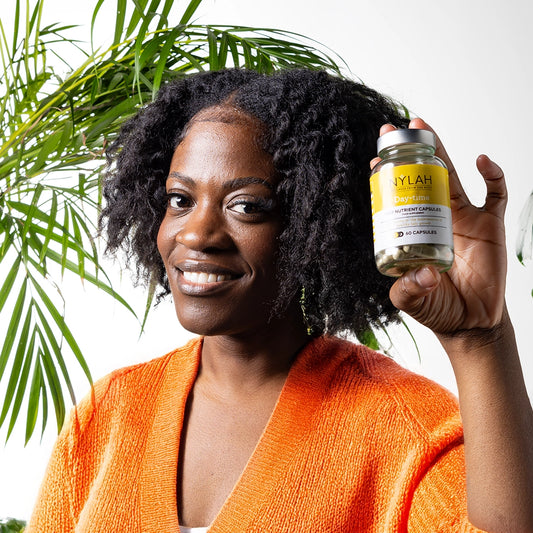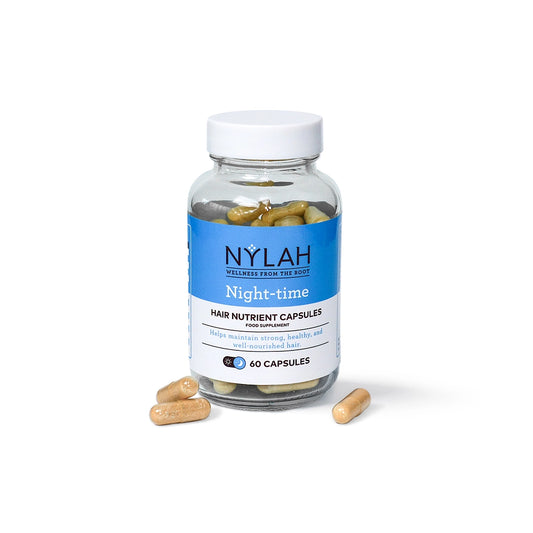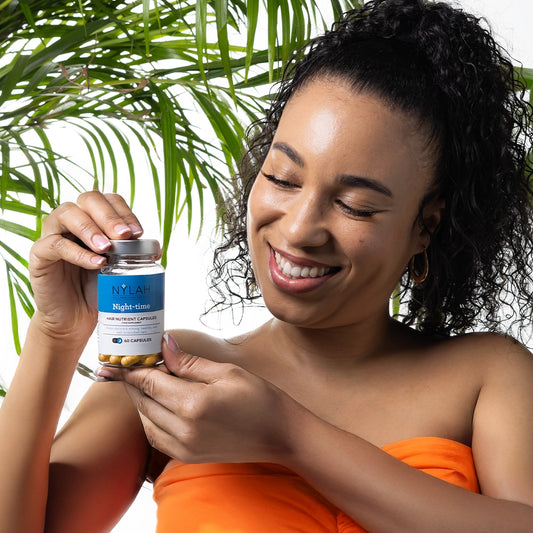What is the fastest way to grow afro hair?
Honestly, there is no overnight solution. Afro hair grows at the same average rate as other hair types (about 0.5 inches per month) - but shrinkage, fragility, and breakage can make growth seem slower.
The fastest way to see growth is to create the right environment at the scalp. That means:
- Supporting the hair growth cycle (anagen phase)
- Improving scalp health (think circulation, hydration, and microbiome balance)
- Reducing inflammation and DHT sensitivity
- Nourishing the follicles with proven, bioavailable ingredients
This is exactly what Flourish Intelligent Hair Growth Serum was designed for - with a gentle yet effective formula to support growth while respecting the sensitivity of textured hair.
Which hair serum is best for hair growth?
The best hair serums for afro hair growth should do three things:
- Target the scalp, not just the hair shaft
- Include clinically-backed actives like Redensyl™, Biotinoyl Tripeptide, or botanical DHT blockers
- Avoid drying alcohols or irritants that disrupt the scalp barrier
Our Thrive Triple Action Growth Serum is trichologist-approved and formulated with:
- Caffeine to stimulate blood flow
- Peptides that signal follicle repair and renewal
- Adaptogenic botanicals to reduce inflammation and support hair retention
This is a potent treatment for anyone struggling with visible thinning or hair loss.
How quickly does afro hair grow with serums?
Growth is individual, but most users begin to notice less shedding and thicker new growth within 6–12 weeks of consistent use. The key word? Consistent. Think of it as a wellness ritual, not a one-time fix.
What should I avoid in a hair growth serum for 4C hair?
When shopping for a growth serum for afro hair, avoid:
- Heavy oils that clog follicles (especially if used daily)
- Synthetic fragrances or essential oils in high concentrations, which can irritate the scalp
- Alcohol-based formulas that dry out your already fragile strands
Your serum should support the follicle without compromising the moisture balance of your scalp or strands.
What oil grows afro hair?
Oils alone don’t grow hair - but they can support retention by sealing in moisture and preventing breakage. Some oils shown to support scalp and hair health include:
- Pumpkin Seed Oil (blocks DHT)
- Black Seed Oil (anti-inflammatory and antimicrobial)
- Castor Oil (rich in ricinoleic acid to nourish follicles)
Our Flourish Serum contains a light blend of botanical oils chosen specifically for their growth-supporting potential, without weighing hair down.
What stimulates the most hair growth in Black hair?
Scientifically speaking, the most effective hair growth stimulants for afro hair are:
- Caffeine (increases scalp circulation)
- Biotinoyl Tripeptide-1 (supports keratin infrastructure)
- Saw Palmetto or Pumpkin Seed Extract (blocks DHT activity)
- Scalp massage (promotes blood flow to the follicles)
These ingredients are found in both Flourish and Thrive, along with adaptogens that help address stress-induced hair loss — a huge factor for many Black women navigating life, motherhood, or hormonal shifts.
Can I grow an afro in 3 months?
You can certainly start seeing results in 3 months - especially if you combine a quality serum with protective styling, a balanced diet, scalp care, and low-manipulation routines.
Remember: afro hair thrives when treated as part of a whole-body wellness approach.
Nylah’s Naturals: Designed for 4C Hair from Follicle to Finish
Both of our growth serums were developed to meet the unique needs of afro-textured hair:
Flourish Intelligent Hair Growth Serum: Gentle, lightweight and perfect for sensitive scalps or early-stage shedding. Ideal for use during postpartum recovery, protective styling or early signs of thinning.
Thrive Triple Action Growth Serum: More intensive and designed for visible hair loss or bald spots. Ideal for stimulating stubborn follicles and enhancing fullness over time.
Final Thoughts: Choose Growth, the Healthy Way
Hair growth is a journey - especially for afro textured hair types. But with the right tools, support, and consistency, healthier, fuller hair is possible.

